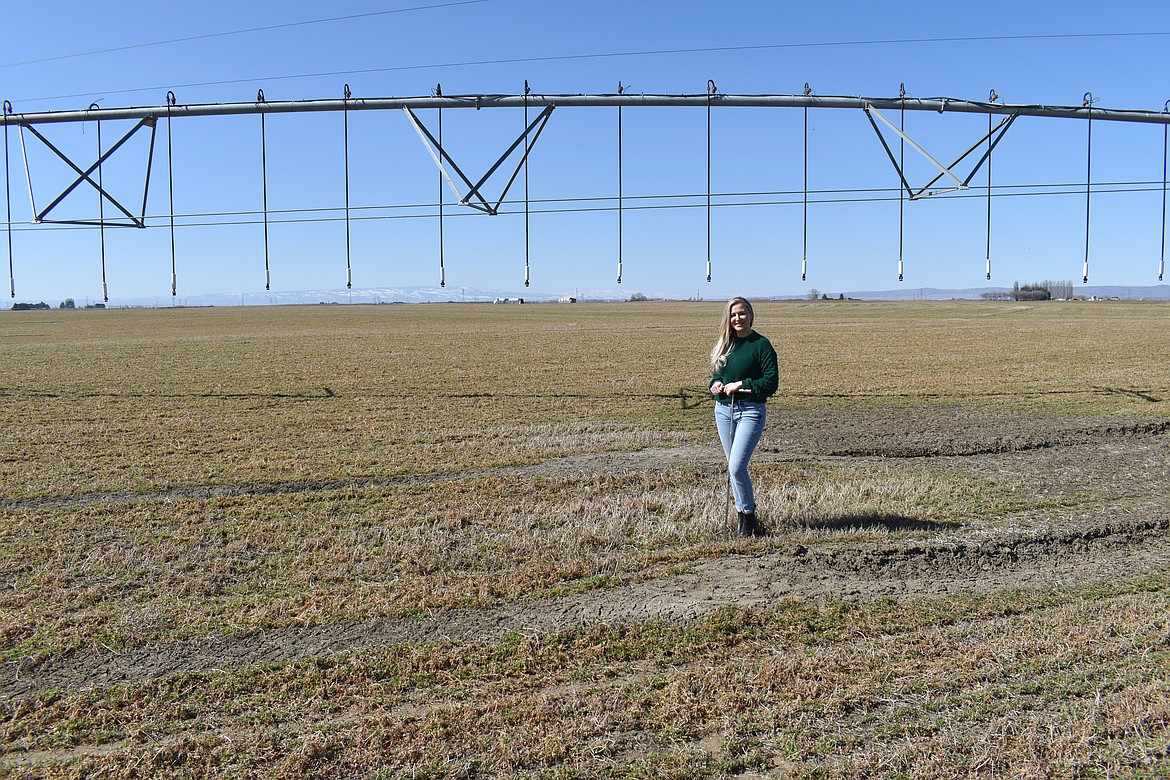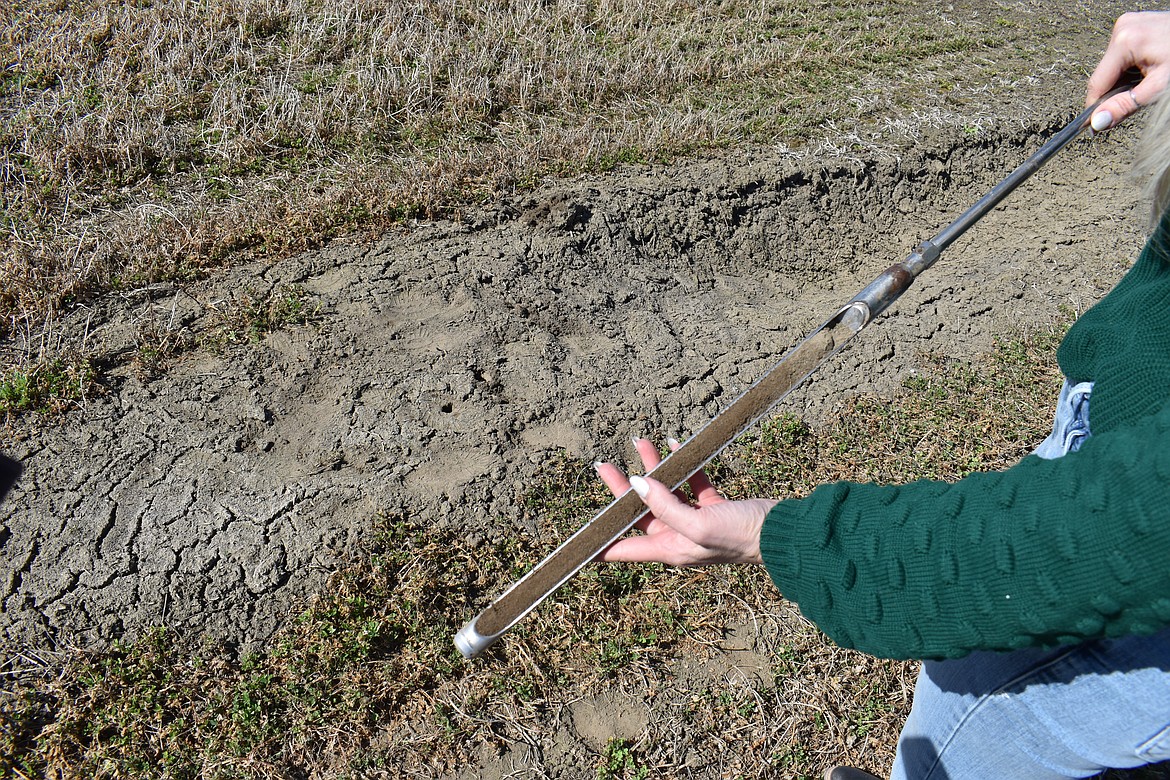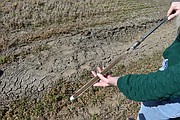Specialty land: Moses Lake agent specializes in complex ag land sales
basinbusinessjournal | UPDATED 2 years, 8 months AGO
MOSES LAKE — When it comes to real estate, agricultural sales are unique in what consumers have to consider.
Things have changed since Anna Van Diest, farm specialist and broker with Basin Ag Sales, an extension of Moses Lake Realty Group, began dealing in farmland 15 years ago.
“At the time, there just weren’t very many farm sales,” Van Diest said. “You know, most farmers purchased property they were already leasing, or they had established relationships with landlords, (or) they’d sell to their neighbor. They knew everybody in the community, and that’s who they sold to.”
Today, Van Diest said, the business has changed.
“A lot of these farmers aren’t small farmers, they’re corporations, and sellers are not really selling to the neighbor anymore. And if they do sell to the neighbor, they want to know that they’re getting the best deal. Sometimes sellers get taken advantage of. I’ve seen it time and time again,” she said.
Van Diest has been selling agricultural real estate since she was 19, she said. She and her family emigrated from Estonia when she was a small child, and she fell in love with farmland simply by driving around the Columbia Basin. Many real estate agencies handle some agricultural land, but Van Diest makes it her focus.
“I remember one day I took a weekend drive, and I was driving out west of Moses Lake, and I remember seeing a field full of dandelions. And it was under an irrigation pivot, so I knew that somebody had planted those on purpose. And I was just really thirsty for knowledge and wanted to know why somebody would plant dandelions,” she said.
“So I got connected with a couple of different farmers that really took me under their wing, and taught me all about the variety of crops that grow in the Basin. I researched it and researched irrigation equipment and soil profiles (and) crop rotations,” Van Diest explained.
The business of farming was fascinating to Van Diest and something she enjoyed learning about, she said.
“I couldn’t get enough of it,” Van Diest said.
Agricultural real estate is a varied and sometimes research-intense field, Van Diest said. She’s worked with bankruptcy trustees that needed to maximize returns on properties. She offers a variety of services that a home purchaser wouldn’t necessarily need, such as drone footage and flights over potential real estate that is up for sale.
Of course, one of the biggest issues for farmers is water, especially in Eastern Washington.
“The water is so complex. There’s Bureau (of Reclamation) water, and then there’s state water, so there’s different sources of water that these farmers are using. I’ve applied for water for several clients. It is very complicated, but I’ve learned how to do it. I’ve helped sort different places of use, because you can’t water-stack in the Basin. And that means nothing to a lot of people, but it’s a big deal when you’re selling land.”
Water stacking, Van Diest explained, is using more than one source of water for a given patch of land. Irrigation water rights generally come either from the State of Washington, for groundwater, or the federal Bureau of Reclamation, for water from the Columbia Basin Irrigation Project. The state no longer issues water rights except for water from the Columbia River, she added. But those growers who do have groundwater available aren’t allowed to take water from Reclamation’s irrigation canals, or vice versa.
Having access to water rights sufficient for the intended crops grown on a plot of land can be time-consuming, but well worth the effort, she said.
“Believe it or not, I’ve had clients that have gotten water in as early as three years, which has more than tripled the value of their property,” Van Diest said.
Having expert help is especially important for those folks who aren’t already farmers but would like to get into the field. There isn’t a lot of land on the market, Van Diest said, but it can be done.
“Find some farmland that is going to work for you,” she said. “And there are a lot of great grants through the Farm Service Agency that are available for first-time farmers.”
Some farmers may choose to go through local banks or AgWest Farm Credit, one of the larger lenders in the Northwest. The process of getting financing involves determining the value of the land from an agricultural perspective, which can include an appraisal, feasibility studies, soil evaluation and land use and leasing options, she said.
“All that fun stuff that comes with the land,” she said, “Then we’re able to close.”
There are government grants available for people who want to farm, Van Diest added, to help with the cost of equipment. Getting the tools and skills required to get started is an important step on the road to farming success, she said.
“I would say, find a farmer and get under their wing,” she advised. “Learn the nuts and bolts from the farmer, let them take the lead, and absorb what they’re going to teach you.”
There are certain pitfalls that even experienced farmers can run into when buying land. Taxes are a biggie, Van Diest said, and prospective buyers should enlist an accountant. Even experienced real estate agents are sometimes over their heads when it comes to tax implications on farmland.
“Personal property, pumps, irrigation – that’s all taxed differently,” Van Diest said. “We really want to allocate values for personal property and real property, which is the land, differently. ... A lot of Realtors don’t know that, so they sell a farm for $2.5 million and don’t think to reduce the personal property.”
Retaining a lawyer for agricultural real estate transactions is almost always a good investment, Van Diest said. She gave the example of leases.
“Don’t just enter into any old lease agreement, please,” she said. “Because, sometimes there’s provisions in there that just anybody doesn’t understand that can encumber your land. Do not sign a lease agreement until your attorney takes a look at it. … You want to know what you’re signing. I have seen people sign 10-year contracts, I’m not kidding, at $175 an acre, and the going rate is $650 an acre. They had no idea … As a buyer, you want to know, ‘Does the land have a lease on it? What’s the duration of that lease? Is there an option or right of first refusal on the property?’ That’s an encumbrance to the land that you really need to know about.”
Like real estate in general, the price of farmland is skyrocketing, Van Diest said.
Interest rates are increasing similarly to the housing market, she said. Some financiers are charging as much as 7.8% interest or more. Additionally, when she first started, farm real estate was selling for about $4,500 per acre, but now that same type of land is going for as much as $18,000 per acre.
Van Diest operates as a dual agent, she explained, meaning she represents both the buyer and the seller, something not generally done in real estate but necessary in such a specialized field to make sure that both buyer and seller get a fair deal.
“It’s so much more than a real estate transaction,” she said. “You’re selling a lifestyle. Oftentimes sellers are emotionally connected to their land. I’ve showed up to closing tables where people that are selling farm ground that has been in the family for generations have cried. There’s a lot of emotions involved.”
Joel Martin can be reached via email at [email protected].





